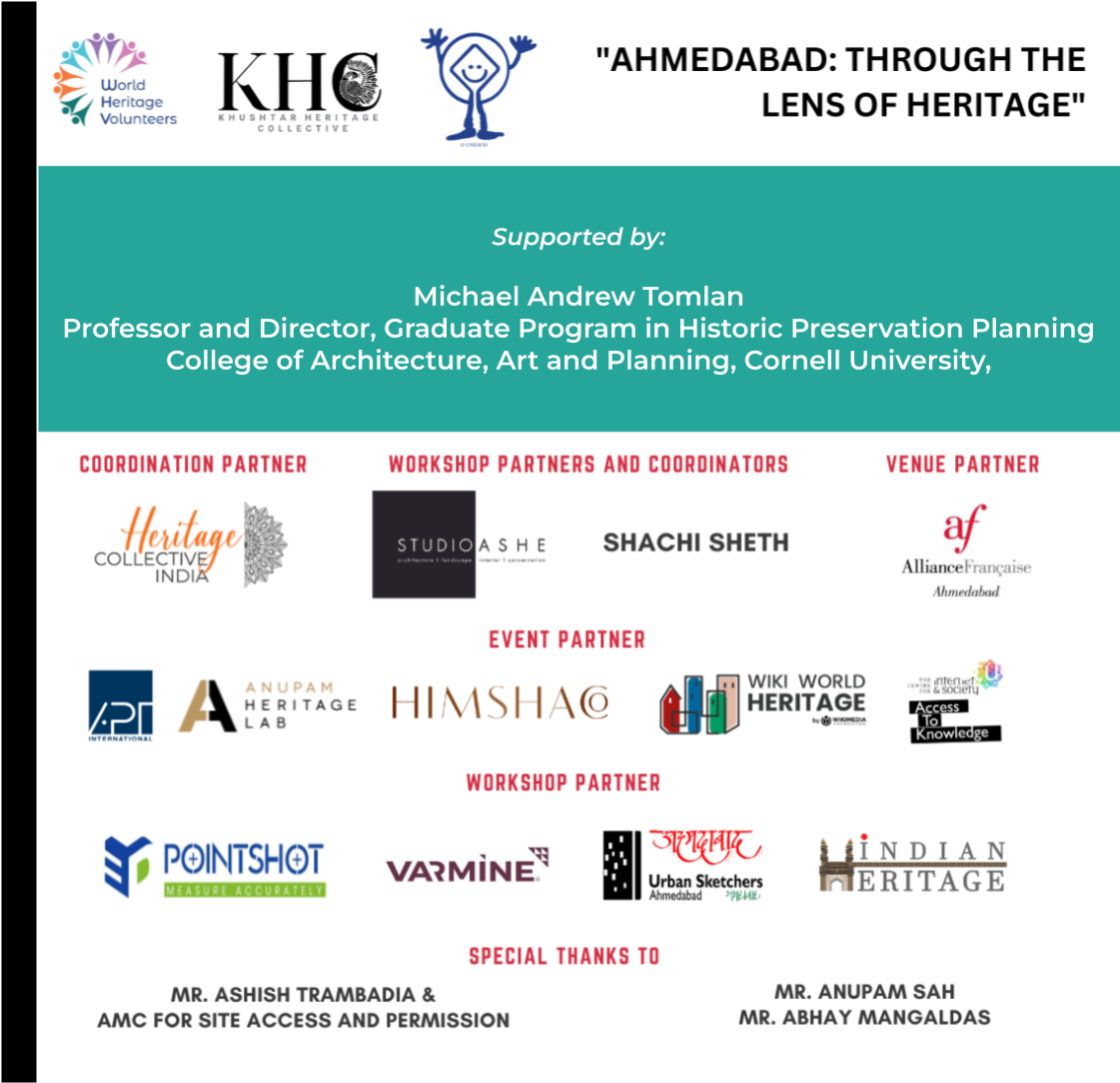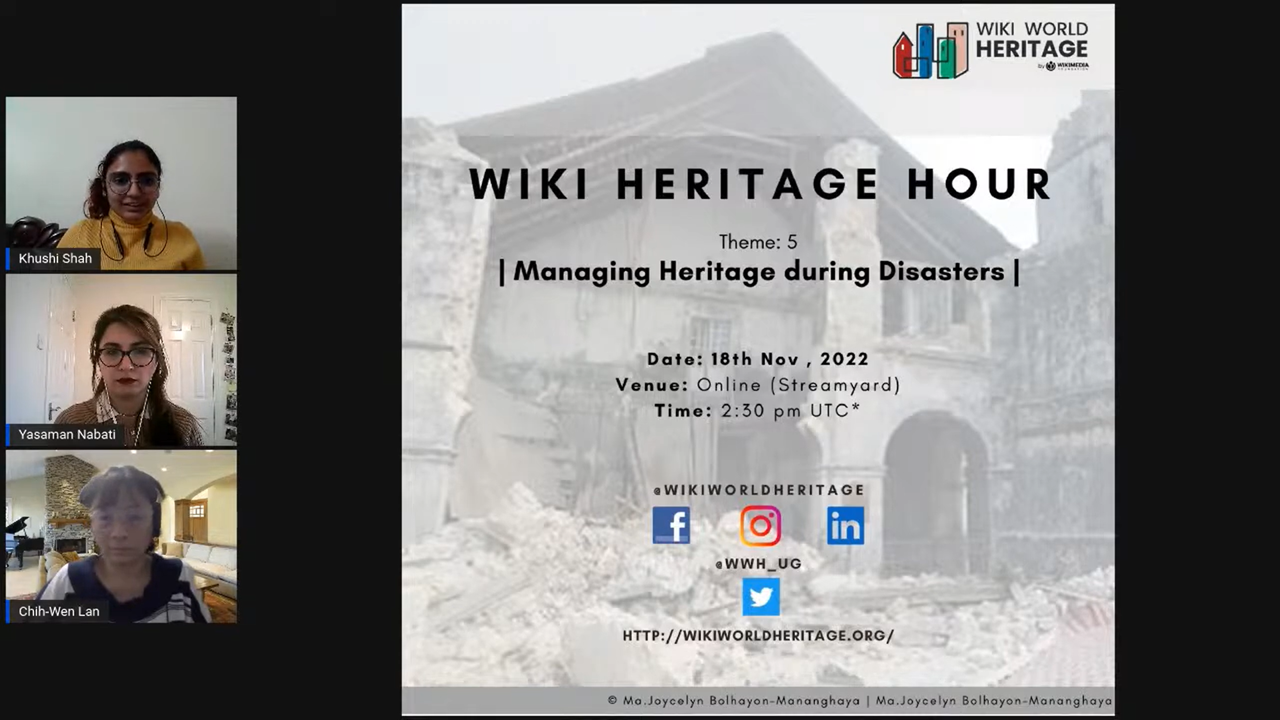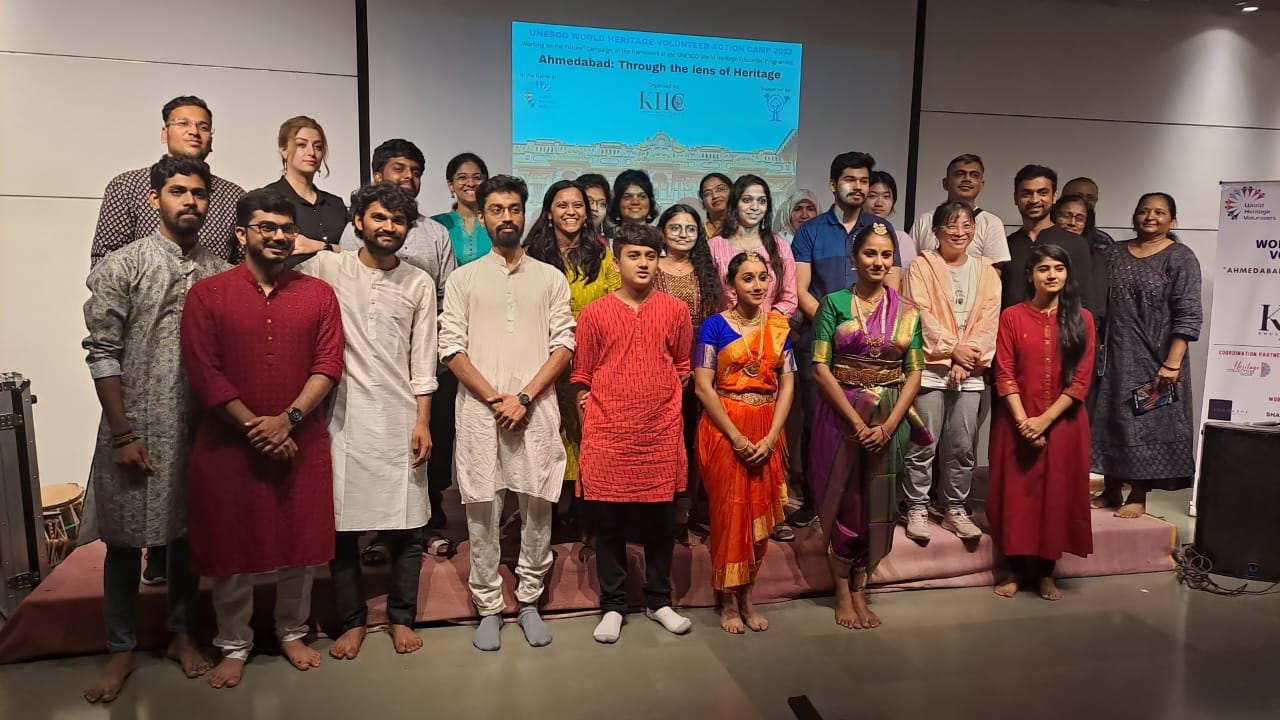Wikimedia Workshop for the World Heritage City of Ahmedabad
The World Heritage Volunteers (WHV) Initiative was established in 2008 as part of the UNESCO World Heritage Education Programme, in partnership with the Coordinating Committee for International Voluntary Service (CCIVS), to enlist and involve youth organizations and the general public in the preservation and promotion of World Heritage
WIKIMEDIA WORKSHOP
The collaboration with Wiki World Heritage marked an exciting journey into the realm of digital documentation for enthusiastic participants. Equipped with cameras, laptops, and a genuine passion for heritage, these individuals played a vital role in enhancing and updating Ahmedabad’s representation on the global heritage map.

Wikimedia Workshop by Vijay Barot

Wikimedia Workshop by Yamen
A key component of this collaboration was a comprehensive three-hour-long wiki training session, co-chaired by Vijay, a seasoned Indian Wikimedia user, and Yamen. The training aimed to equip participants with the necessary skills to effectively contribute to the digital documentation of heritage. Vijay’s focus during the session was on leveraging Wikimedia Commons, emphasizing its significance as a platform for hosting and sharing media files that can enhance articles on Wikipedia and other Wikimedia projects.
By learning how to leverage Wikimedia Commons, participants gained insights into the optimal ways of sharing their captured heritage media with a broader audience. This not only facilitated wider access to the documented heritage but also contributed to the collaborative and open nature of knowledge dissemination.
On the other hand, Yamen concentrated on WikiData and its role in heritage conservation. WikiData is a collaborative knowledge base that allows users to link diverse datasets and contribute structured data, making it an invaluable resource for creating a comprehensive understanding of heritage elements.
The participants explored the use of WikiData to integrate data into the larger framework of heritage conservation. This required knowing how to contribute, organize, and format data in a way that complies with WikiData guidelines. By doing this, participants gained the information and abilities necessary to connect their heritage places and cities to a wider information network, promoting a more intricate and thorough comprehension of heritage places.
Participants learned how to capture and document heritage through the lens of their cameras, how to utilize Wikimedia Commons for effective media sharing, and how to integrate data into the broader context of heritage conservation using WikiData.

Wikimedia Workshop
The collaboration encouraged a two-way exchange of knowledge. Participants not only absorbed valuable insights from the seasoned Wikimedians leading the sessions but were also encouraged to share their newfound knowledge with a broader audience.
The benefits of Partnership
Initiatives like the World Heritage Volunteer program play a crucial role in fostering partnerships and collaborations that contribute significantly to the promotion and conservation of heritage. This program serves as a platform for volunteers to engage with open-source platforms, notably Wikimedia, and understand the pivotal role they play in making information accessible to a global audience.
One of the primary benefits of programs like World Heritage Volunteer is the democratization of knowledge. By providing individuals with the opportunity to learn about and actively participate in open-source platforms like Wikimedia, volunteers gain insights into how information is created, curated, and shared collaboratively. This knowledge empowers them to contribute meaningfully to the documentation and dissemination of heritage-related information.
Furthermore, these programs have a remarkable ability to bring together volunteers from diverse geographic regions and professional backgrounds. This diversity enriches the collaborative efforts in heritage conservation and promotion. Volunteers, irrespective of their cultural or professional differences, unite under a common goal – the preservation and celebration of heritage. This interdisciplinary approach brings varied perspectives to the table, fostering a more comprehensive understanding of the significance of heritage and the various ways it can be documented and shared.

Partnerships for the program


